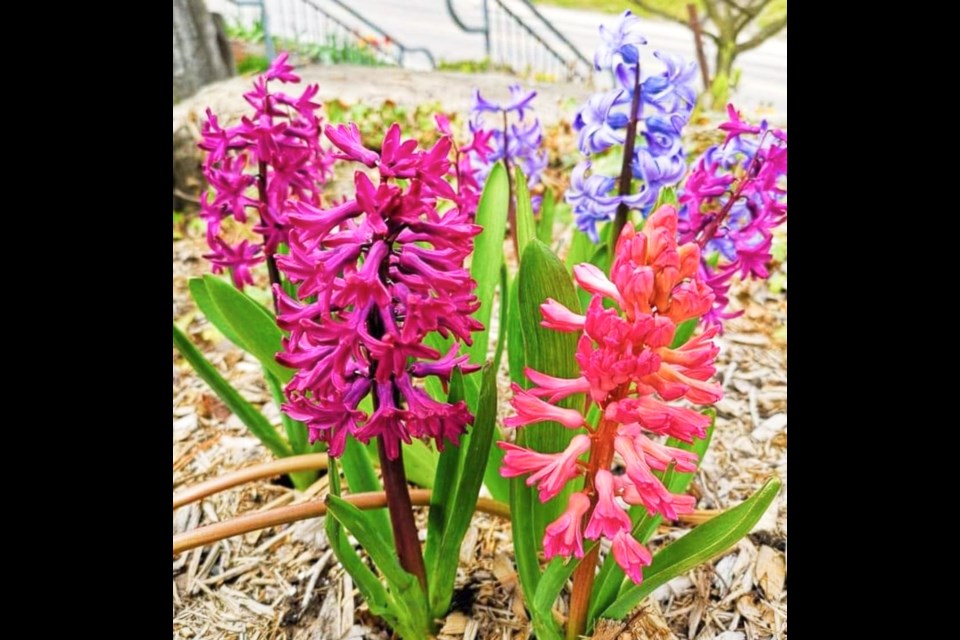It's an act of public beautification, but the roots of horticultural societies in Cambridge are to help educate and gather people who share a love for gardening.
Within the area, there are three horticultural societies; the Galt Horticultural Society, the Preston Horticultural Society and GardenHespeler. All three have their roots between of 1878 and 1900, sharing a similar mandate to encourage interest and improvement in horticulture.
“I still think the mission is to educate people on gardening, and any way we get that message out, we try to help, we try to support and we focus on community," said Liz Stacey, president of the Galt Horticultural Society.
To help educate people about gardening, all three societies host various events throughout the season. These events can range from guest speakers and workshops to plant sales, which Preston Horticultural Society is hosting on May 28.
Members also get opportunities to travel to different places to explore and learn about gardening topics. The cost of a membership ranges between $10 to $15.
"We’re proud of this area that we live in and we can certainly maintain it. We don't always need the City of Cambridge maintaining things," said Maria Gillespie, president of the Preston Horticultural Society, which maintains flower beds at Gore Park, between Concession Road and King Street.
While life is different from over a hundred years ago, president of GardenHespeler Sherry Couchman, said there are ways for horticultural societies to remain relevant. She cites an example from her horticultural society, where it hosts workshops for people who cultivating plants while living in an apartment.
“We try to share seeds and plants and try to share the wealth if someone has access to something we might not have,” said Couchman, whose society has flower beds at Bergey Hill of Franklin Street.
“It’s really an opportunity to have a connection and see what’s going and to see what’s available in an urban setting."
Outside of education, these societies can provide support for other organizations. The Preston and Galt societies both began growing vegetables and produce to donate to the Cambridge Food Bank.
“We have a lot of community groups, like neighbourhood societies, request for our help to come and maybe do some workshops on how to plant, or how to request seeds, or to clean up a garden," Stacey said about how her horticultural society gets involved with the community.
“We have a lot of seniors who can no longer take care of their gardens, we have volunteers who will come and help them out, usually it’s by donation.”
With all three organizations based in similar beliefs, and part of the same governing district, all societies try to work together.
“We do have access to other speakers, and if you can’t make our meeting date, we try to tape the meetings so that people can still get the information, so we do offer out (meetings) and try to work together to make sure people, whether it’s a garden tour or its a workshop, to try and promote the societies and we all can gain knowledge from the information that’s being shared," said Couchman.
Sharing information between the three societies and with the community also helps build relationships between new and experienced gardeners.
“I think people have gotten into the gardening craze with COVID,” said Gillespie. “As a gardener, we love to share our plants, we love to share ideas on how to grow things."
The Preston Horticultural Society and GardenHespeler both note an increase in memberships throughout the pandemic, with 54 members and 30 members respectively.
Despite the growth of these two organizations, the Galt Horticultural Society remains one of the largest horticultural societies in the area with over 250 members. Stacey notes it may have something to do with the one-acre property on Grand Street, called Ferguson's Cottage, that the society maintains.
“It’s really pretty to walk through and enjoy, and sit down, and we’ve got some benches where you can sit down and eat your lunch and maybe drink some coffee,” Stacey said about the property.
Since 2022 has been designated as the year of the garden, each society is gearing up to plant and maintain red and white flower displays, alongside offering in-person events. To help support their gardens, all three organizations mention they are accepting new volunteers and members of all ages.
“It’s very important. There’s no way two or three people could manage an acre garden," said Stacey about volunteers, adding the society hosts a corn roast at the end of the season to thank its volunteers.
“You don’t have to be an experienced gardener, it’s for people who just want to learn and have a good time,” said Couchman.



